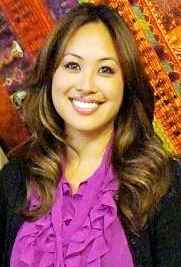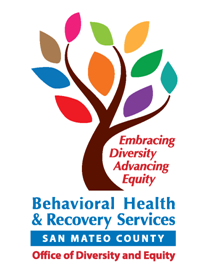 By Lauren Getuiza
By Lauren Getuiza
Educators, consider this scenario:
Jandell is a 15-year-old student who you’ve known for years. He seems like a typical adolescent in every way. He has a group of friends, gets decent grades, and is involved in after-school activities. He appears to get along well with teachers, parents and other students.
Over the summer, he was involved in a serious auto accident with his older brother. They both recovered from their injuries; however, Jandell doesn’t seem like himself this year. He is not as engaged in class, though he still manages to keep up his grades. He also seems a bit more emotional than before and he no longer hangs out with his friends. Instead, he only wants to be around his brother.
As the school year progresses, Jandell blows off your initial outreach. He stops participating in his after-school activities and appears to be jumpy—overreacting to almost any loud noise. He often looks tired and run down.
One day, a student stops you in the hall to tell you that Jandell is “freaking out” in the bathroom. You rush in to see a group of students staring at Jandell, who is curled up in the corner of the bathroom. He is rocking back and forth, sweating profusely, with both hands over his ears. The students explain that Jandell began screaming immediately after the bell rang and that two guys were goofing around slamming doors, but that’s all, nothing big.
As Jandell’s teacher, how should you approach him? What do you say to him?
Mental health issues in young people are quite common. One in five adolescents will develop a mental health problem at some point during their school-age years. The understanding and assistance of a supportive adult can impact if and how quickly a young person receives appropriate professional help. In most cases, an adult with little or no background in mental health is most likely to be a student’s first responder.
Youth Mental Health First Aid (YMHFA) is an 8-hour public education program designed to teach adults who regularly interact with youth (ages of 12-24), how to help a young person who is experiencing a mental health or addiction challenge, or is in crisis. The course teaches adults with little-to-no knowledge of mental health disorders the tools they need to feel more confident and comfortable in recognizing the signs of emotional distress. Rather than teach individuals to diagnose, the course provides participants with the necessary tools to support a young person in crisis until professional help is received.
Participants learn about the early warning signs and risk factors of common mental health disorders, typical adolescent behavior and a 5-step action plan to assist a young person in crisis and non-crisis situations. Topics include anxiety, depression, substance use, disorders in which psychosis may occur, disruptive behavior disorders (including AD/HD), and eating disorders. The training is presented in an interactive format utilizing scenarios, activities, videos and written materials.
 The San Mateo County Office of Education recently partnered with San Mateo County Behavioral Health and Recovery Services’ Office of Diversity and Equity to provide free Youth Mental Health First Aid certification training courses to both private and public middle and high schools throughout the county.
The San Mateo County Office of Education recently partnered with San Mateo County Behavioral Health and Recovery Services’ Office of Diversity and Equity to provide free Youth Mental Health First Aid certification training courses to both private and public middle and high schools throughout the county.
School staff have often established a rapport with students and as a trusted adult, can play an instrumental role in a student’s recovery. Classroom teachers, school site administrators, school office personnel, coaches, bus drivers, afterschool providers, parents, teacher’s aides, school health aides, yard duty staff, crossing guards as well as student leaders can become Youth Mental Health First Aiders. Through school-based YMHFA trainings, campus communities can help bridge a student in crisis to the appropriate help they need.
As depicted in the scenario with Jandell, any school personnel could encounter a situation that calls for mental health literacy, awareness and action. By completing the Youth Mental Health First Aid certification, participants will be better prepared to assess Jandell’s risk of suicide or self-harm, listen non-judgmentally, offer reassurance and information, and encourage him to seek appropriate professional help, as well as self-help and recommend other support strategies. As a certified Youth Mental Health First Aider, Jandell’s teacher would be better prepared to support and assist him.
Bring Youth Mental Health First Aid to your school or community!
Lauren Getuiza works for the Office of Diversity and Equity, San Mateo County Behavioral Health and Recovery Services. Lauren is a certified Youth Mental Health First Aid Instructor and an active advocate for stigma-reduction, empowerment and recovery.
Comments
How to acquire training for this? I am from the Philippines.